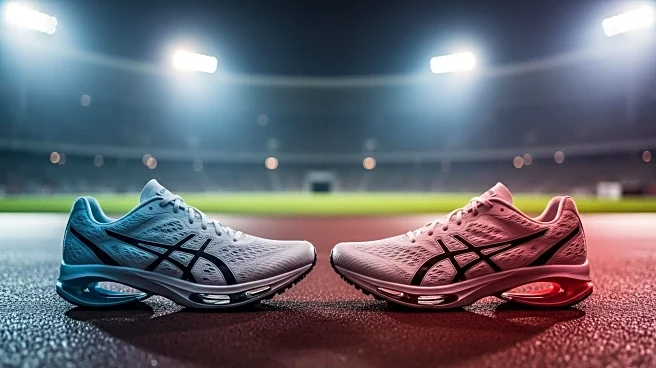What's Happening?
Melissa Jefferson-Wooden from the United States and Oblique Seville from Jamaica emerged victorious in the 100m finals at the World Athletics Championships held in Tokyo. Jefferson-Wooden, aged 24, secured the gold medal in the women's final with a championship record time of 10.61 seconds, showcasing her dominance over the competition. Shortly after, Seville, also 24, celebrated his win in the men's final with a personal best time of 9.77 seconds, marking the first Jamaican male victory in the global 100m event since Usain Bolt. Seville's win led a Jamaican one-two finish, with Kishane Thompson taking silver, while American Noah Lyles, the defending champion, claimed bronze.
Why It's Important?
The victories of Jefferson-Wooden and Seville are significant as they highlight emerging talents in the world of athletics. Jefferson-Wooden's win underscores the strength of American female sprinters on the global stage, while Seville's triumph marks a new era for Jamaican male sprinters following Usain Bolt's legacy. These results may influence future sponsorships, training programs, and the focus of national athletics federations. The performances also contribute to the ongoing narrative of competitive rivalry between the United States and Jamaica in sprinting events.
What's Next?
Following their victories, Jefferson-Wooden and Seville are likely to become key figures in their respective national teams, potentially influencing team strategies and training regimens. Their success may inspire younger athletes in their countries to pursue sprinting, potentially leading to increased investment in athletics programs. Additionally, their performances could impact selections for upcoming international competitions, including the Olympics, where they will aim to replicate their success.
Beyond the Headlines
The achievements of Jefferson-Wooden and Seville may have broader cultural implications, particularly in terms of representation and inspiration for young athletes. Their victories could encourage greater participation in athletics among underrepresented groups, fostering diversity in the sport. Furthermore, their success may prompt discussions on the importance of mental resilience and strategic preparation in achieving peak performance.









